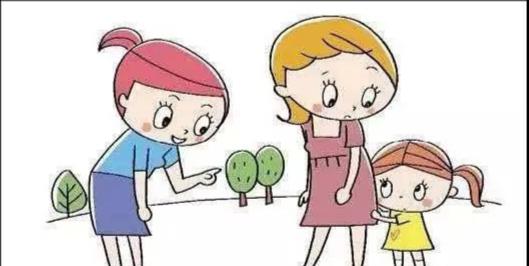From time to time to receive parents' consultation, there is a problem is often mentioned, that is, the child sees familiar people do not like to say hello, after the reminder of the greeting voice is also very small, if not reminded not to shout.
I feel that the child is timid and shy, and does not dare to express it in some public places, and it is not clear whether this will affect the child's future growth?
First of all, think about it yourself, that is, if the child is like this, how do you feel? Do you feel like you have no face in front of acquaintances? And then think the child is a rude person?
I once heard some children say to me privately, the most annoying thing is that the mother often let her say hello, after each greeting feel good fake, I said you can sincerely say hello to each other, the child said, get used to it, really can't get up.

So by greeting the child, it is more important as a parent to help the child find a balance in being the true self and the social self.
Let's first analyze the general reason why children don't like to say hello, so that we can better find a solution.
First, the possible causes
1, children are born temperament is more introverted, sensitive, like a slow beat, such as our adults themselves are more introverted, but also not good at expressing people, may also have this innate temperament in this regard, if so, we have to accept this part of the child, as if accepting yourself.
2, parents instead of children, for example, every time they see acquaintances, parents must remind children to say hello, so when children are used to the parents' reminders, they naturally do not say first, because there is no opportunity to perform first.
3, when they do not do a good job will get criticism and ridicule, that is, they have not performed well or said hello when they have received bad experience, naturally will feel incompetent and worthless, often so they will internalize and recognize their own piece of not good, so as not to dare to perform again.
4, parents too strong in the danger of the external world, such as do not run around will be abducted, do not do that thing, will be arrested by the police, when a small child feels that the outside is not safe, naturally will rely on parents and timid.
5. The child does not have relevant abilities. I don't know how to express myself, how to greet people.
Second, a few suggestions
1, if it is the child's natural temperament, respect the child's differences, accept the child's introverted and sensitive side, such a child tends to have better observation, and the mind is more delicate, and it is easier to focus on things;
2, do not do things instead of children, if parents always do things instead of children, naturally children will not have the opportunity to grow; so when children grow up, we must encourage and let children participate on their own. For example, say hello, don't say it yourself first, if the child doesn't say it, remind afterwards, the next time you have said it, affirm and praise in time.
3, when the child does not do well, do not humiliate the child, do not label the child, on the contrary, give acceptance and support, let the child put down the pressure and worry, because a person can not relax at the same time when nervous. Encourage and affirm the child's good side, give the child confidence, when the child is praised and encouraged, the heart will breed a better desire to do next time, so as to gradually establish the child's self-confidence.
4, build a safe space for children, trust the world and people and things; some threatening words are less said.
5, teach children how to greet people, practice this skill, it is best through some fun and interesting ways, such as picture books, stories, games is a good way. You can play two people you meet on the road, and then you greet him, the other person responds, and then how you respond. Through practice, children learn, and with this ability, they naturally know how to say hello.